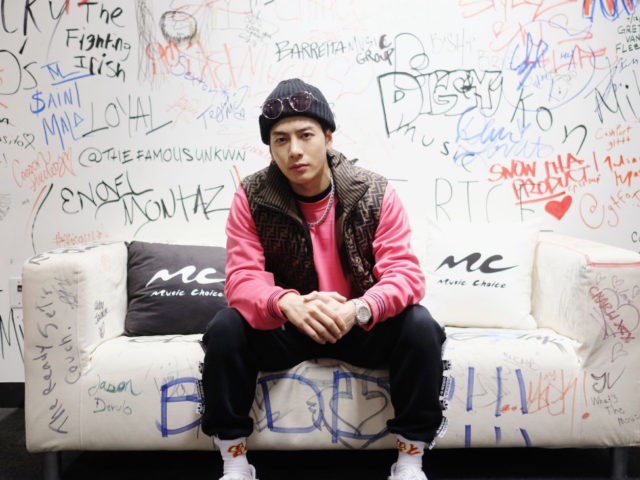A Chinese state propaganda war against Western companies launched this week continued Friday with the announcement of dozens of Chinese regime-approved celebrities canceling sponsorship deals with brands that oppose the use of Uyghur slaves to pick cotton.
The campaign began this week when members of the Communist Party uncovered corporate statements made by apparel companies H&M and Nike in the past year distancing themselves from the Chinese slave cotton industry. Extensive reporting over the past two years has revealed that, as an offshoot of its Uyghur concentration camp system, the Chinese regime has enslaved at least thousands members of the ethnic Uyghur minority and forced them to pick cotton. A critical report published in March 2020 by the Australian Strategic Policy Institute (ASPI) documented proof of Beijing offering government incentives to factories nationwide in exchange for purchasing Uyghur labor, then shipping Uyghur slaves to factories outside of their native Xinjiang province. The study listed 83 multinational companies, among them some of those targeted by Beijing today, as benefitting from Uyghur slavery.
In December, a study by researcher Adrian Zenz revealed the extensive use of mobile phone apps by the Communist Party to streamline the enslavement of Uyghur people and forced labor generally in the Xinjiang cotton industry.
U.S. Customs and Border Protection (CBP) banned all cotton products from Xinjiang from entering America in January.
H&M, Nike, and Adidas were among the companies that published statements last year, in response to a campaign by human rights activists, distancing themselves from the use of Xinjiang cotton.
The state-run Global Times propaganda outlet announced Friday that, following actor Wang Yibo announcing an end to his contract with Nike, another over two dozen Chinese celebrities made similar moves overnight.
“More than 30 Chinese celebrities including Wang Yibo, Jackson Wang [pictured], Zhang Yixing, and Dilireba from the Xinjiang Uygur Autonomous Region, have been cutting ties with brands like Nike and Adidas to show support for cotton products from Xinjiang on Thursday in the wake of H&M’s anti-Xinjiang cotton controversy,” the newspaper claimed. None of the “celebrities” mentioned have mainstream careers in the West, where their defense of state-sponsored slave labor would meet with public disgust.
Adidas, one of the first companies to distance itself from the Xinjiang slave industry last year, reportedly lost two endorsement deals: “young actor Jackson Yee, who starred in the Oscar-nominated film Better Days” and “Hong Kong star Eason Chan.”
The Global Times also claimed the existence of a separate celebrity campaign in support of the Communist Party by those with no affiliation to the companies in question, “such as hot idol Xiao Zhan.”
The campaign resembles a similar government-promoted effort in 2019 against the pro-democracy protests that erupted in Hong Kong that year. A wave of Chinese rappers, including many made famous through the popular – and later censored – reality TV program The Rap of China, posted online memes in support of the Hong Kong police force’s violent repression of peaceful demonstrations, a strange sight for many in the West, where hip-hop music has often been critical of authority. China also circulated a petition allegedly signed by celebrities in support of Beijing illegally intervening in Hong Kong; many of the celebrities on the list later said they were never approached to sign any petition and did not support the effort.
The Global Times claimed the latest craze in support of slave-picked cotton is also popular among regular Chinese citizens, alleging the remote Xinjiang province is seeing an explosion of tourist interest domestically.
“Searches for ‘where to go in Xinjiang this April’ surged 275 percent on domestic travel services platform Mafengwo in the 24 hours ended at 2 pm on Thursday, according to the latest statistics provided by the platform to the Global Times,” the propaganda outlet alleged. Xinjiang enjoyed “instant popularity” as a result of the controversy, the newspaper claimed, without providing any evidence for the alleged searches other than chatter on Weibo, a government-controlled social media outlet that the Party regularly uses as a barometer of public opinion, but also aggressively censors. The article also omits the fact that the Communist Party heavily regulates travel through its “social credit system,” which has banned millions of Chinese citizens from traveling due to “low scores.” Public disagreement with any government policy can lower a person’s score.
“Due to the safe public order in Xinjiang and its beautiful natural scenery, it’s a fabulous choice for travel,” an alleged Beijing resident identified as “Liu” told the newspaper.
None of the forces promoting the campaign against H&M, Nike, and others for publicly distancing themselves from China’s slave trade have clarified the reasoning behind the timing – the allegedly offending statements were published in some cases as much as half a year ago. The Communist Youth League organized a pressure campaign against H&M this week in response to those statements that has since devoured several of the world’s most prominent fashion companies.
The Chinese Foreign Ministry weighed in Thursday to once again deny the extensive evidence of the mass enslavement of Uyghur people in the cotton industry.
“First, Xinjiang cotton is one of the best in the world, and it will be the loss of certain company [sic] to not use it,” spokeswoman Hua Chunying said. “Second, the allegation of ‘forced labor’ in Xinjiang is nothing but malicious lies concocted by a few anti-China forces in an attempt to smear China, undermine security and stability in Xinjiang, and frustrate China’s development.”
“Anyone who offends the Chinese people should prepare to pay the price,” Hua warned.

COMMENTS
Please let us know if you're having issues with commenting.